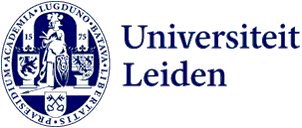
Children’s rights professor: ‘Children should figure in every decision you make’
Professor Ton Liefaard has worked to improve the position of children since his academic career began. Vulnerable children are given a voice in his research. Since 2012, he has held the UNICEF Chair in Children’s Rights – one of its kind in the world.
That Leiden is still the only university with such a chair is likely because of its early interest in youth law. Leiden and UNICEF decided to develop this young discipline together after every country except the US signed the 1989 Convention on the Rights of the Child.
Since 2012, students have been able to take the Master’s in Child Law and since 2015, an English-taught Master’s in International Children’s Rights, programmes only available in Leiden. Graduates of the programmes go on to work in a wide range of organisations: the judiciary, law firms, the office of the Children’s Ombudsman, children’s rights organisations, government ministries and international organisations such as UNICEF, the UNHCR (the UN refugee organisation), the European Commission and the Council of Europe.
Family relationships
Liefaard and his team research how legislation and case law relate to international children’s rights. They also conduct interdisciplinary research, using methods from the social sciences. A recent study of theirs was of family relationships on the islands of Bonaire, Saba and Eustatius. ‘It gave a clear picture of family dynamics, tensions and challenges on each island, and of what the Netherlands could do to protect women’s and children’s rights’, says Liefaard. At the islands’ request, Liefaard and his colleagues are now working on practical recommendations from the research: What should be placed on the political agenda? How can professionals take this work forward?
Patience and realism
Nearly all countries may have signed the Convention on the Rights of the Child, but this does not mean children’s rights are always high on the agenda. As the Convention has been almost universally embraced, governments can at least be held accountable, says Liefaard. ‘That means you can talk about children in the most difficult of circumstances and with the most abominable of regimes.’
Trying to get a seat at the table, however bad a regime might be, is not quite the picture international students have when they come to Leiden. ‘You sometimes see their dreams shatter in the classroom’, says Liefaard. ‘International students often arrive full of ideals – they want to help vulnerable children in their own countries. They soon realise the reality they’ll be working in and it comes as a real shock. How can you promote children’s rights in a country without a functioning government, or where civil society is not allowed to exist?’ Liefaard encourages them to be realistic about what they can achieve. ‘Be patient, keep talking, also with the government, and take a long-term view. That’s how you can make a difference for the children of today and tomorrow.’
All policies affect children
Liefaard is not unequivocally positive about the state of children’s rights in the Netherlands. ‘It’s a great country to grow up in. It’s safe, it’s non-authoritarian and we have good schools. Children can play in the street and have a sense of freedom. But if you need care, weren’t born in the Netherlands or come into contact with the justice system, all sorts of factors suddenly make childhood far less happy and free. Systems don’t always deliver what they should. Children fall between the gaps in services.’
And what we often forget: decisions that are not directly about children can still negatively affect them. He gives the example of families whose water supply was cut off because they couldn’t pay the bill. The courts ruled against this, citing the Convention on the Rights of the Child. ‘If you take children’s rights seriously, you need to make sure to bear children in mind whenever your decisions, policies or actions will affect them, be it directly or indirectly’, says Liefaard. ‘And involve children in finding solutions.’
This article is in the latest edition of Leidraad alumni magazine. Read the full magazine (in Dutch).
